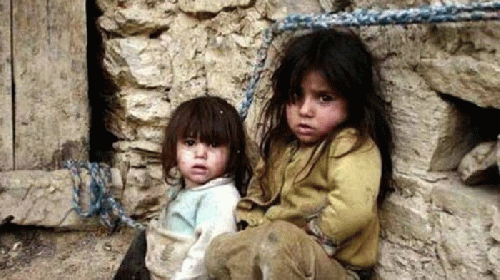Poverty in Iran
The problem of poverty in Iran is getting out of hand. A few days ago I called a family member to say hello. She was quite upset. She told me that a few minutes earlier she had run into a worker who was badly crying because he did not have enough money to buy food for his family. Iran is one of the biggest reservoirs of oil and natural gas in the world .just the thought of hunger in Iran is mind boggling.
The problem of controlled media prevents the people living outside of Iran from knowing about the problems in Iran. This article is combination of two articles written on internet . Since their sources were Iranian papers and officials , i thought it would be good to reed.
Iranian state-run media ran several pieces on Saturday, just one day after the heavily boycotted presidential election, about the economic crises that keep getting worse.
The Setar-e Sobh wrote that most Iranians suffer from "poor economic conditions", with 25 million or 30% living below the poverty line. The news outlet explained that the people's living conditions have gotten worse over time.
Of course, the economic crisis was caused by the officials' corruption and plundering over the past 40 years. The trouble is that new President Ebrahim Raisi has no intention to resolve the issues because he is part of the problem.
The Resalat daily wrote: "Improper sale of debt securities, compensation of budget deficit from pledged assets, hasty transfer of the country's infrastructure industries to known and unknown persons, and above all, reduction of public participation and [officials'] plundering of national wealth have destroyed the public's trust. It has also caused the greatest damage to the system, and its effects last for years."
This again shows that the ruling system is at the heart of the country's financial problems and that officials from within the system would not fix it.
Meanwhile, the Aftab-e Yazd daily wrote about how the mullahs' institutionalized corruption wrecked the economy, stating that the political economy model endorsed by the mullahs gives some politicians "many advantages" and "tremendous power", with them "abusing their responsibilities".
The article read: "These officials, to maintain their power and political advantage, need to blame the people's poor situation and underdevelopment on internal and external enemies. They blame their inefficiency and totalitarianism, and monopoly in all areas, especially in the field of bread, housing, and employment, on enemies."
The Iranian economy is dominated by the Revolutionary Guards (IRGC) and officials profiting from plundering the people, even though the mullahs and their apologists attempt to blame international sanctions.
Aftab-e Yazd wrote: "No one dares to make the cycle of market and capital prosperity easy. Because the financial and economic mafias do not allow anyone to use the science of economics for using the amazing and powerful potential in Iran" The seizure and control of resources always requires inflammation and tension in domestic and foreign policy, and undoubtedly reflects the unfavorable economic situation and instability and calm in international relations, and social, cultural, and political policies are born from this strategy."
The Iranian Resistance explained that the mullahs' malign policies, including terrorism and nuclear weapons, are destroying the economy.
For instance, parliament speaker Mohammad Bagher Ghalibaf said in 2017 that 96% of the country is poor, while Minister of Cooperatives, Labour and Social Welfare Mohammad Shariatmadari said earlier this year that most of the population require subsidies that the population below the poverty line has doubled since 2017. This doubling comment was echoed by the head of the Tehran Chamber of Commerce, who said that rising inflation had widened the class gap and increased the percentage of the population under the poverty line.
Meanwhile, the state-run Hamdeli daily wrote on June 12: "Most Iranian households are currently living in absolute poverty" According to the United Nations, in 2020, incomes below $2.19 per person per day will push people below the absolute poverty line. This means that today, every person in Iran who has less than 500,000 rials (about $2) to live is considered below the absolute poverty line."
(Note: You can view every article as one long page if you sign up as an Advocate Member, or higher).





